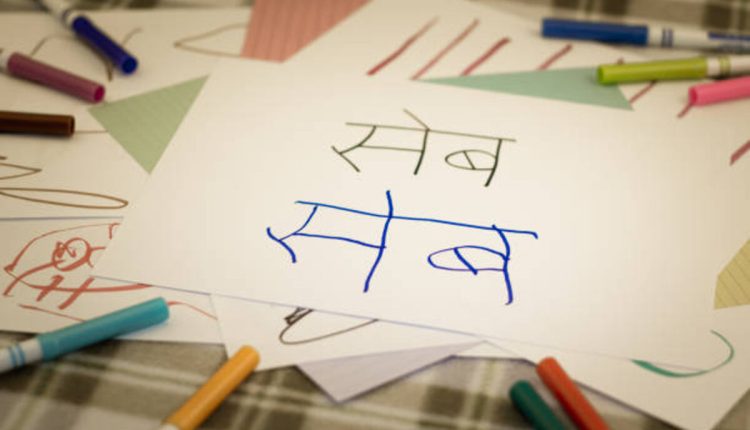The Bachelor of Education course gives aspirants an introduction to teaching. Many UGC-AIU-NCTE-DEB-approved universities offer this degree both regularly and through distance mode; upon completing it, graduates can find ample job opportunities in schools across our nation, particularly government sector schools that need qualified educators.
Learning the language
One of the best ways to learn Hindi is by talking about it. You can start simply conversing with friends who speak Hindi or join a group that practices regularly with its speakers; doing this will improve your vocabulary, pronunciation, grammar, and understanding of India’s culture and history, as well as help boost your confidence when speaking the language in front of others.
As a first step to learning Hindi, it is necessary to acquire both an alphabet and pronunciation for Devanagari script, the primary writing system used across India’s many regional languages such as Marathi, Nepali, Bhojpuri Garhwali Kumaoni Pahari as well as Sanskrit Pali. There are 33 letters in the Devanagari alphabet, read left to right like Latin letters, while consonants are written with vertical strokes except vowels, which use their unique font style.
Once you’ve mastered the alphabet and pronunciation, it’s time to expand your vocabulary. There are numerous websites and apps designed to assist with this; reading books written in Hindi as well as watching films/TV shows featuring this language are great ways to do this; alternatively, you could hire a tutor who’d teach it directly – this will build confidence while making speaking Hindi much simpler!
Conjugating verbs is another crucial component of learning Hindi. Verbs must be conjugated according to various grammatical categories such as number, gender, and tense; for instance, a verb that ends with “na” must be changed to end with “na” when conjugated for present tense use. A conjugation chart will assist with this learning process.
If you need help pronouncing Hindi words correctly, listen to recordings of native speakers. Or try memorizing some with flashcards or watch Bollywood films to gain familiarity. Start small: learn a few words each day until your vocabulary increases gradually over time.
Reading the notes
Students pursuing a Bachelor of Education (B.Ed) degree should make sure to take notes to help remember key concepts and ideas related to their course, taking great notes can mean the difference between passing or failing your class.
IGNOU offers its students free self-learning materials in Hindi and English for self-study, making these accessible to those with various learning styles and preferences. Both print and digital forms of study material are available, providing access for those learning differently.
The B Ed curriculum spans four semesters over two years and encompasses topics like Philosophical and Sociological Foundations of Education, The Learner: Nature and Development, Guidance Counselling Counseling, and Physical Education.
Listening to the teacher
When learning Hindi, you must listen attentively to your teacher. This will allow you to grasp its nuances fully and how it’s spoken. Keep in mind that Hindi is an assimilative language – many words sound alike (for instance, yh and vh both mean “he” or “she”). Also important is learning the difference between aspirated and unaspirated consonants.
Unlike nouns, verbs must be conjugated in order to reflect different grammatical categories, such as gender and tense. A general guideline suggests that words ending with vowels aa are usually masculine while those ending in vowels ii een can sometimes be feminine – though this doesn’t always hold! A good reference dictionary should help conjugate new verbs.
Studying on your own
If you prefer studying on your own, writing notes by hand could help. According to research, writing helps people absorb information better than typing on a keyboard. Taking your notes slowly and carefully allows your brain to process them and will ensure you remember all the material when taking tests in the future.
If you are interested in pursuing a Bachelor of Education, join @haryanabed telegram channel and download all necessary notes, practical files, and previous year’s question papers. Plus, you can ask any queries and receive answers from fellow students!


